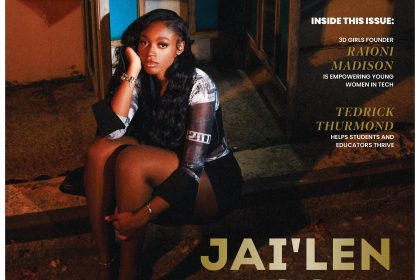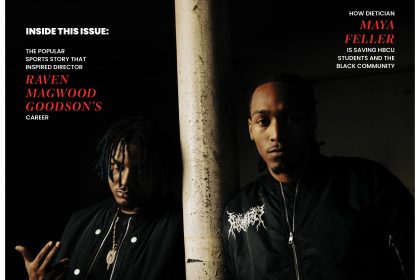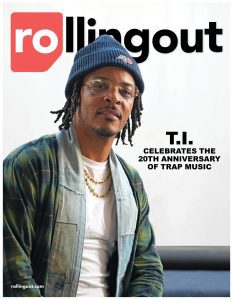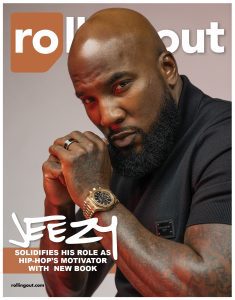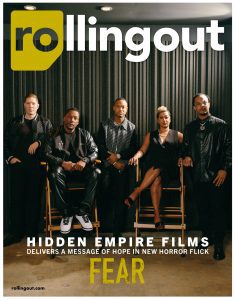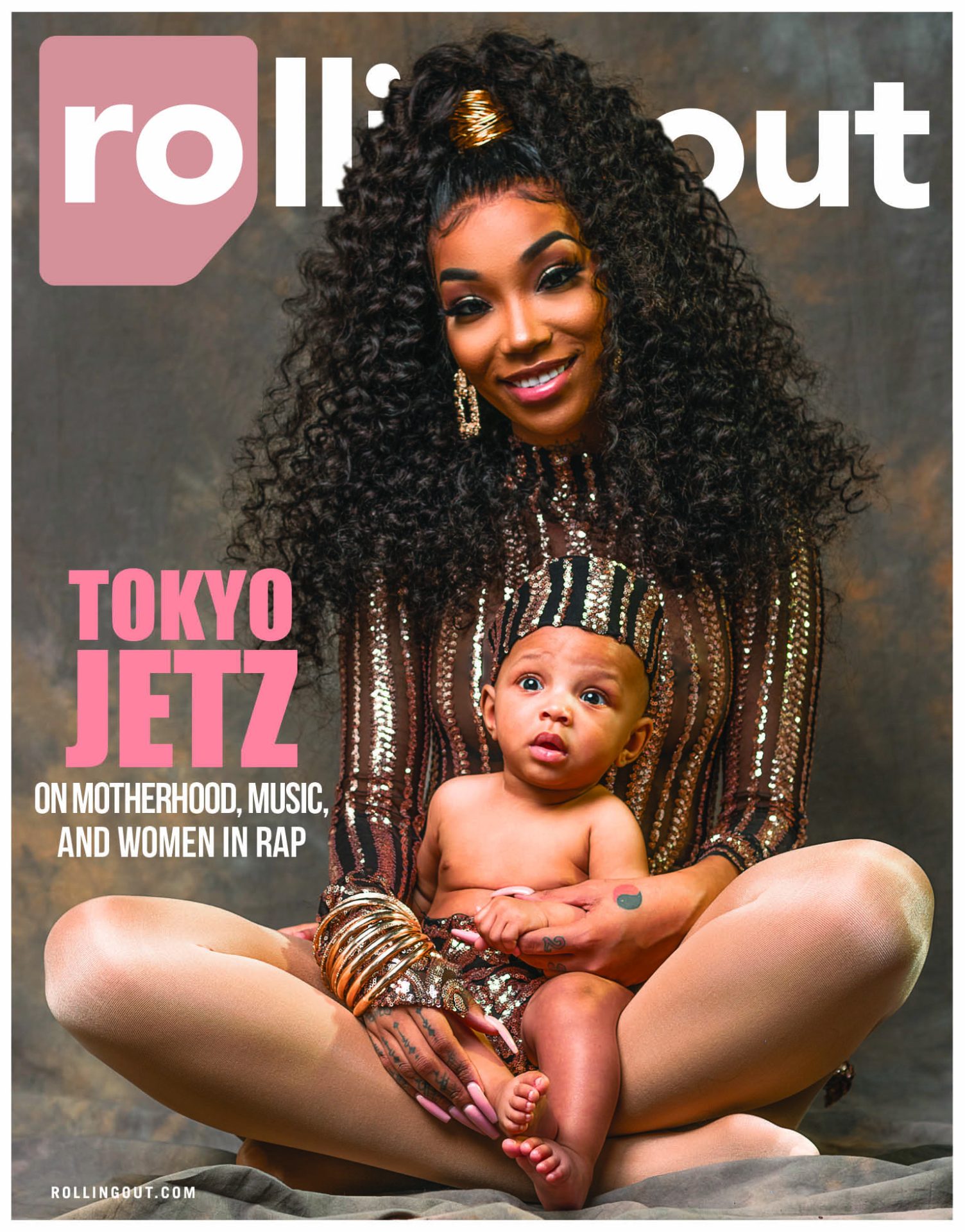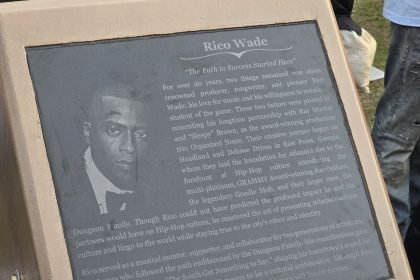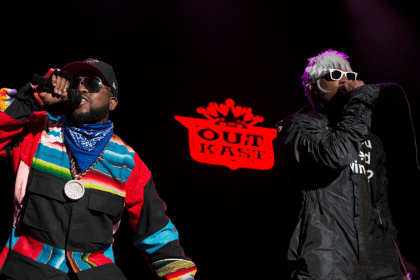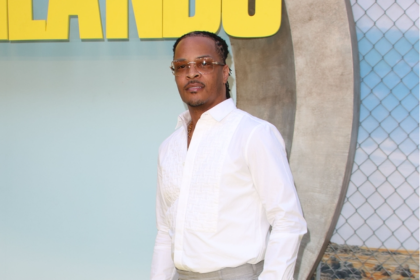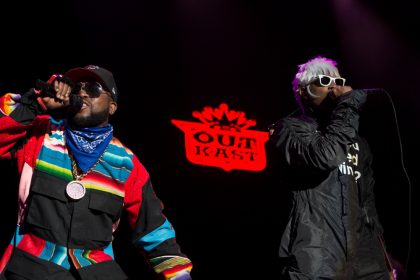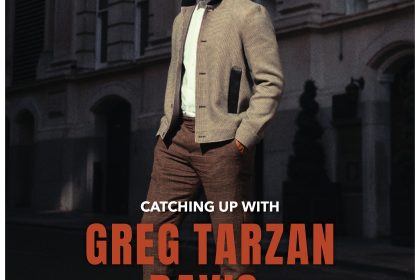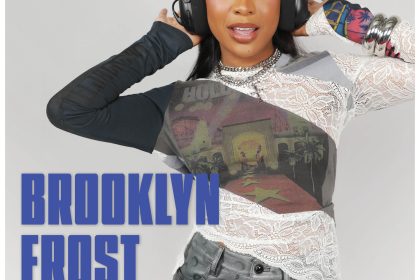
Words by: Amir Shaw Images by: DeWayne Rogers
Bobby Ray Simmons Jr. took a moment to stare at Atlanta’s skyline from the 23rd floor of the W Hotel. Along with looking at the city’s towering buildings, he pointed out various sites that have changed drastically since his youth. “They tore down all of those apartments,” Simmons said while pointing at an area where America’s first public housing projects, Techwood Homes, stood. The property has since been replaced by a mixed-income development.
Just like many American cities have stripped away struggling communities, the music industry has a way of tearing down true artists until they conform to the standard of what sells.
Enter Simmons, aka B.o.B.
The Decatur, Ga., native grew up during a time when Southern rap was finally gaining a place within mainstream hip-hop and developing music that proved to be irresistible to fans and profitable for major record labels.
But instead of diving deep into ATL’s street-influenced rap that drove record sales from that region, B.o.B picked up a guitar, harmonized and created music that fans of any music genre could enjoy.
The payoff for making music on his own terms was tremendous. His critically acclaimed debut, B.o.B Presents: The Adventures of Bobby Ray, sold more than 600,000 copies and was nominated for six Grammy Awards.
Within months of the album’s release, B.o.B found himself anchoring the Grand Hustle record label during T.I.’s absence by releasing several chart-topping hits and even performing for President Barack Obama.
B.o.B has done the unimaginable and has the pedigree to do it twice. He is looking to take his career into the stratosphere with the release of his sophomore album, Strange Clouds.
Musically, B.o.B is light-years ahead of his peers. It’ll be awhile before he slows down, so most artists shouldn’t even try to catch up.
Your music seems to come from a variety of places. How were you first introduced to music?
Music always began from a fun place. I was never forced into it. I would pick up an instrument whenever. I played trumpet up until I felt it wasn’t cool anymore in high school. But I really started taking music as a career seriously when I was about 14. I always thought that I was doing things in music that were normal, but everyone else thought it was something different about it.
How did the Southern rap movement of the late ‘90s and early aughts influence you in the beginning of your career?
Growing up in Decatur, I was really into a lot of different music. But most importantly, the influence of groups like Trillville, Lil Scrappy, Lil John, T.I., Goodie Mob and OutKast. That was an era when the “New South” movement was really at the forefront of the music world. It’s interesting to me, because I got signed at 17 and the next year I put out “Haters.” That song allowed me to travel to different places around the world. In Germany, for example, they’re in love with Southern hip-hop. To see how Atlanta’s music has influenced the world is crazy. I don’t think a lot people in Atlanta realize how much it’s recognized in places like Germany and Japan.
Take us back to the day you signed your record deal with Atlantic Records. What do you remember most about that day?
It was funny, because I went up to New York and performed on a Monday. The next day, we went to Miami to meet Jim Jonson who owns Rebel Rock and is also a producer. He heard the music and he believed in it and we stayed in Miami until they got the contract right. The next day, we flew back to New York and I walked into the conference room at Atlantic Records. I had to perform all of the songs off the demo on the spot, without a mic. I put it all on the line, but I got signed that day. It was Oct. 3, 2007.
You were signed in 2007, but it took several years for you to release your debut. At what moment did realize that your career was taking off?
The most dramatic change was after “Nothing On You” came out and then the world started catching on to me. I’ve always felt close to my fans and just people who are aware of my existence, because it wasn’t always a fortunate endeavor when I was an aspiring artist.
Back when you were an aspiring artist, I’m sure you had to figure out how to remain creative while moving forward with business. How did you balance both?
You have to have a balance between the creative side and the balance between business side. You need a business plan and a vehicle to move it. But I’m a Scorpio and I’m emotional. I put my heart in my music. But I also know that you have to put yourself in the listener’s shoes and, at the same time, stay true to yourself.
Who are your top three lyricists out today?
When I think about lyricists, I think about rappers who can ride any beat. My three favorites are Tech N9ne, definitely Andre 3000 and Eminem. Those are my favorite, hands down.
On “So Good,” you talk about spending time with the perfect woman. What makes a woman stand out from the rest in your eyes?
I like a woman who can take the time to genuinely understand a man and what he deals with. That makes a woman stick out from the rest. Also, to have good hygiene (laughs) and a sense of style and cleanliness. It’s like having a house and someone comes into your house and it’s a mess. That shows a lot about what type of person is living in the house. So I don’t feel like it’s superficial to be stylish and clean. Because actions can speak louder than words.
What’s the most important thing you’ve learned from T.I.?
The most important thing I’ve learned from Tip is him just being genuine. He’s not a person to tell you a lie or how he’s not feeling. He’s 100 percent honest with you. In this industry, there can’t be any gray areas. You have to be honest and articulate what you are trying to say. If everybody operated like that, the entire industry would be better.
Did you ever imagine performing for President Obama?
I didn’t think I would live to see a black president [elected], let alone perform for one. So that was definitely a larger-than-life moment. You start to feel as if it’s just a dream. Those type of situations make you think, “I hope I don’t wake up.”
You’ve had a tremendous amount of success over the last two years. What inspires you to continue working once you’ve reached goals that seemed unimaginable?
Throughout high school, I had to get up at 5 a.m., every day. But nothing is as hard as performing a late show and getting up for an early flight. But you have to get up and go get it. You can’t ever get comfortable while you’re able to work and make more and do better for yourself. Balance it out. On the seventh day, God rested. But if you feel like you’re satisfied and complete, I feel like you have failed at life. You should always keep going and continuing. There should never be stale energy.


